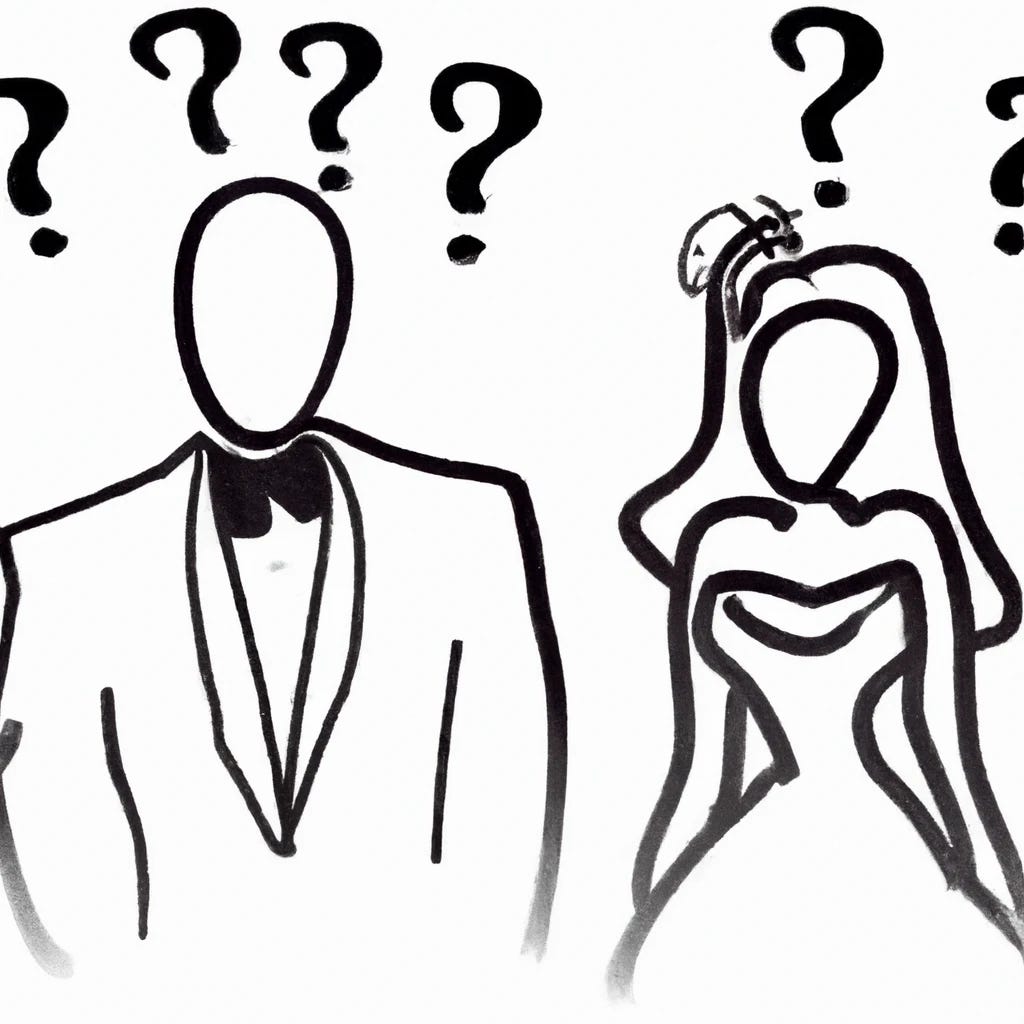My Gender Nightmares, My Gender Dreams
A Deeply Personal Reflection on How Recurring Nightmares Relate to My Experience as a Transgender Woman
As I walked along with my dad, wearing a spiffy tuxedo and taking in the beautiful decorations, my excitement built to the point that I could hardly contain it. The big day was finally here—my wedding day! As I bustled about dealing with various last-minute preparations, my happiness didn’t fade in the slightest. At least not until it was suddenly replaced by an equally intense sense of horror, which is what happened when it dawned on me that I had no recollection whatsoever of who I was about to marry. I was about to walk down the aisle as a groom, and I had no idea who the bride was!
Perhaps this recurring nightmare, which I experienced often in my teens and occasionally in my twenties, was my subconscious’s way of telling me that I wasn’t meant for the role of groom. Perhaps my subconscious was trying to get it through my skull that my evangelical Christian milieu’s norm of marrying young was a way of entrenching the youth—especially girls—deeper in the subculture, making sure they begin to indoctrinate another generation before they have the time to sort out their own values, needs, and goals in a way that might lead them to question or abandon right-wing evangelicalism, or at least its patriarchal prescriptions. One thing I’m convinced of: this dream was a warning and a cry for help from my subconscious, which understood far before I could consciously get a handle on my own repressed queer self that narrow, conservative Christian heteronormativity was never going to work for me.
On a conscious level, from the time I was 16, I had a lot of doubts about the “inerrancy” of the Bible—the belief, which employees and students of evangelical Protestant institutions are typically required to affirm, and that I was taught in the Christian schools I attended, that there are no errors in the Bible, at least in its original manuscripts. (That last little caveat neatly explains away e.g. the discrepancies in numbers of people listed as involved in the same military campaigns described in different books in the Hebrew Scriptures, which we of course called the Old Testament.) I had doubts about the political conclusions evangelicals drew from their reading of the Bible as well, for example about universal healthcare (which they of course rejected as “idolatry”).
I didn’t listen to my subconscious, or did so only at times, hesitantly and partially. Even though at night, as I lay on my bed in a state of REM, I feared I would end up marrying a stranger, by day I was afraid of other things: going to hell, the likely social fallout from openly breaking with the theology and politics of my family and childhood friends, and the apparent meaninglessness of life if what I’d been taught growing up was not in fact true. (Please note, this is how I felt at the time; I no longer miss “having all the answers” or think that life without a god-determined purpose is “meaningless.”)
My failure to listen to my doubts and discomforts, and what in retrospect appear to be the nocturnal urgings of my subconscious, led me to make some questionable decisions as I struggled through my mental anguish and then undiagnosed depression. And when I did finally begin to break away from my evangelical indoctrination in earnest, I spent years feeling like “an impossible person who shouldn’t exist”—whatever course of action I chose, I would feel like I was betraying some of my values—long before I recognized the underlying gender dysphoria.
Keep reading with a 7-day free trial
Subscribe to The Bugbear Dispatch to keep reading this post and get 7 days of free access to the full post archives.




